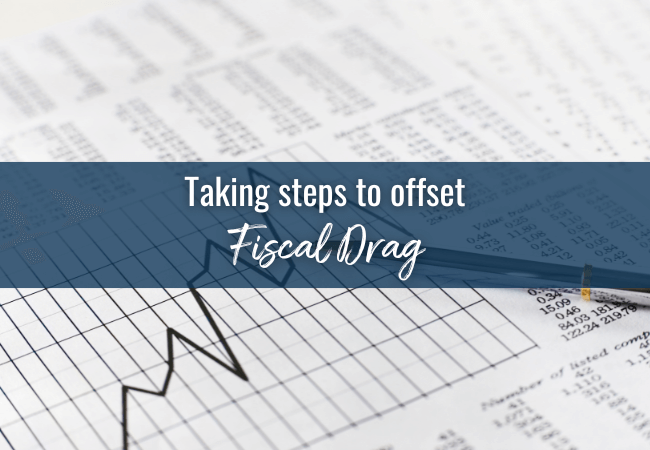The gradual reduction of disposable income due to inflation and changes in tax brackets, or frozen tax allowances, will weigh on your finances, causing ‘fiscal drag.’
By implementing various strategies, you can potentially reduce the impact of fiscal drag on your investments and increase your chances of achieving your long-term financial goals.
The worst thing to do is – nothing. By succumbing to inertia, you are more likely to pay increased levels of tax, whether in relation to Income Tax due to the frozen personal allowances and reduced Dividend Allowance, or other taxes including Capital Gains Tax (CGT) and Inheritance Tax (IHT) which is more likely to cause fiscal drag.
The good news – there are legitimate mitigation strategies and, depending on your personal circumstances, allowances and tax reliefs available. By using your Individual Savings Account (ISA) allowance or making your pension contributions early in a new tax year, you could benefit from extra potential growth, as well as receiving an element of your tax relief earlier on your pension and any pension contributions.
Consider tax-efficient investments, diversify your portfolio and rebalance regularly to ensure your asset allocation remains aligned with your objectives and attitude to risk; rebalancing will help minimise the impact of fiscal drag over time.
Chat to us
If you’re looking for financial advice please contact our friendly team – we’d be delighted to help you.
Clifford Osborne are Independent Financial Advisors (IFA) based in Eastbourne, East Sussex, offering mortgage advice, early retirement advice, pension advice and more.
We see clients across Sussex and Kent, including Eastbourne, Uckfield, Lewes, Brighton, Tunbridge Wells, Hastings, Bexhill, Newhaven, Seaford, Crowborough and further afield.
Why not read our VoucherFor reviews to see what our clients have to say?
The value of investments can go down as well as up and you may not get back the full amount you invested. The past is not a guide to future performance and past performance may not necessarily be repeated. The Financial Conduct Authority (FCA) does not regulate will writing, tax and trust advice and certain forms of estate planning.
It is important to take professional advice before making any decision relating to your personal finances. Information within this blog is based on our current understanding of taxation and can be subject to change in future.
It does not provide individual tailored investment advice and is for guidance only. Some rules may vary in different parts of the UK; please ask for details. We cannot assume legal liability for any errors or omissions it might contain. Levels and bases of, and reliefs from, taxation are those currently applying or proposed and are subject to change; their value depends on the individual circumstances of the investor.
The value of investments can go down as well as up and you may not get back the full amount you invested. The past is not a guide to future performance and past performance may not necessarily be repeated.
If you withdraw from an investment in the early years, you may not get back the full amount you invested. Changes in the rates of exchange may have an adverse effect on the value or price of an investment in sterling terms if it is denominated in a foreign currency. Taxation depends on individual circumstances as well as tax law and HMRC practice which can change.
The information contained within the blog is for information purposes only and does not constitute financial advice.
The purpose of the blog is to provide technical and general guidance and should not be interpreted as a personal recommendation or advice.






